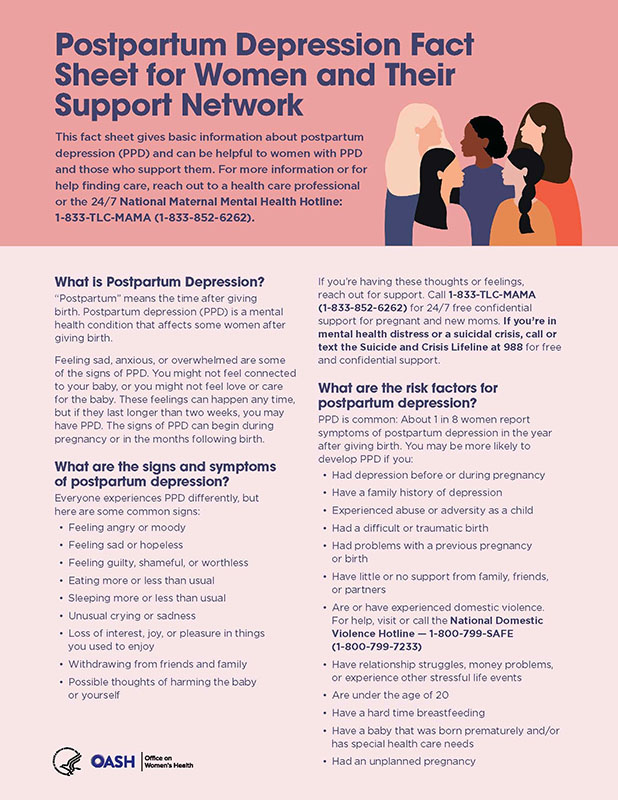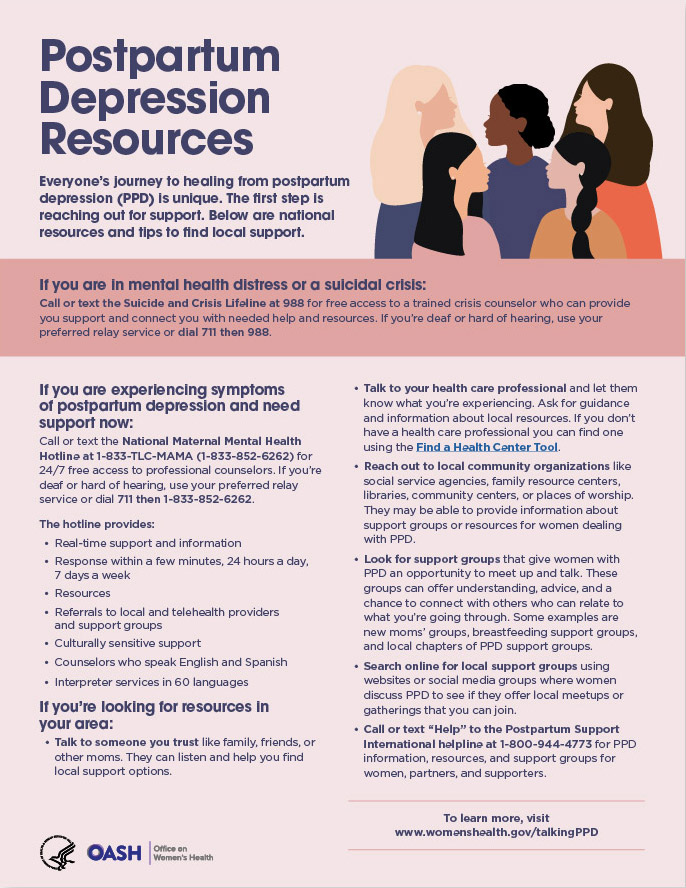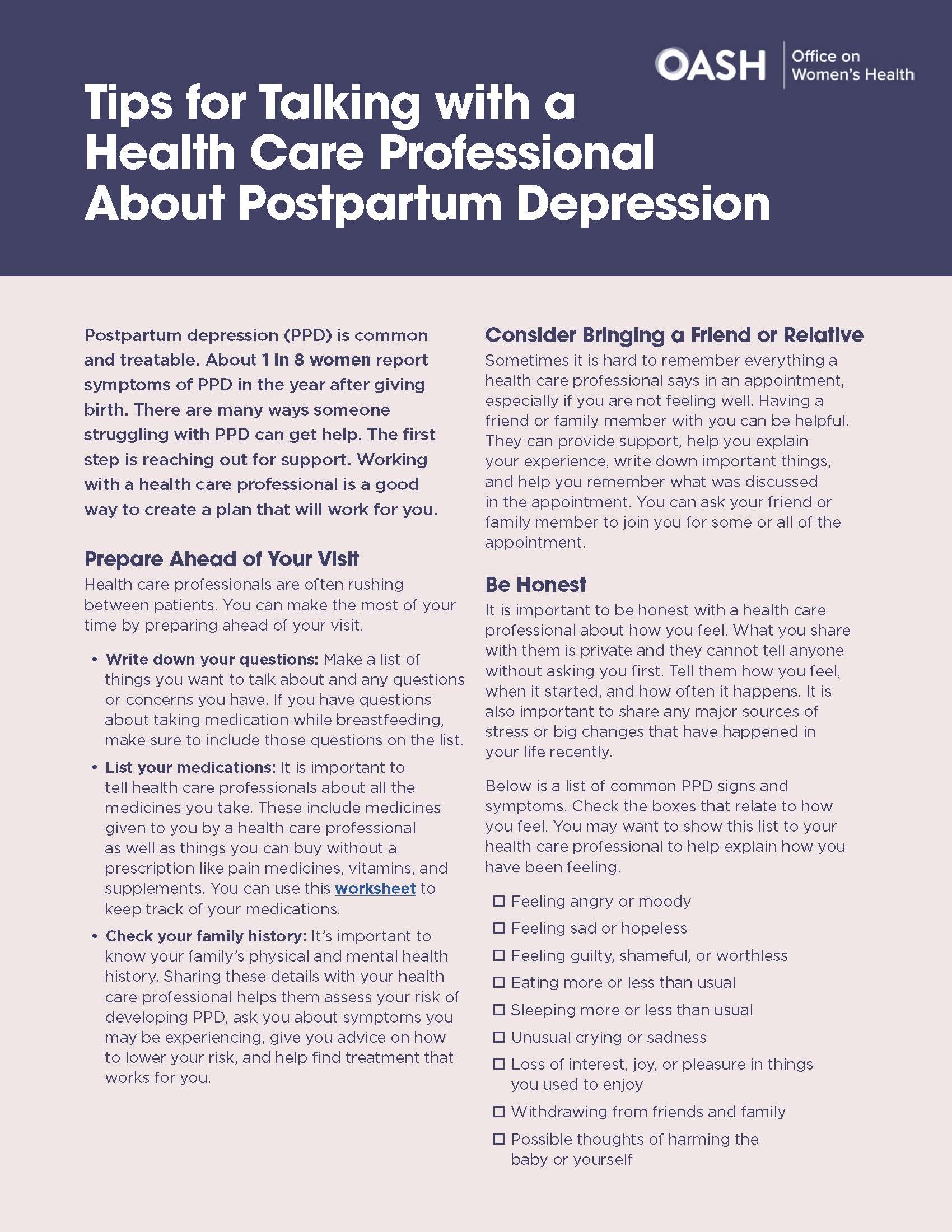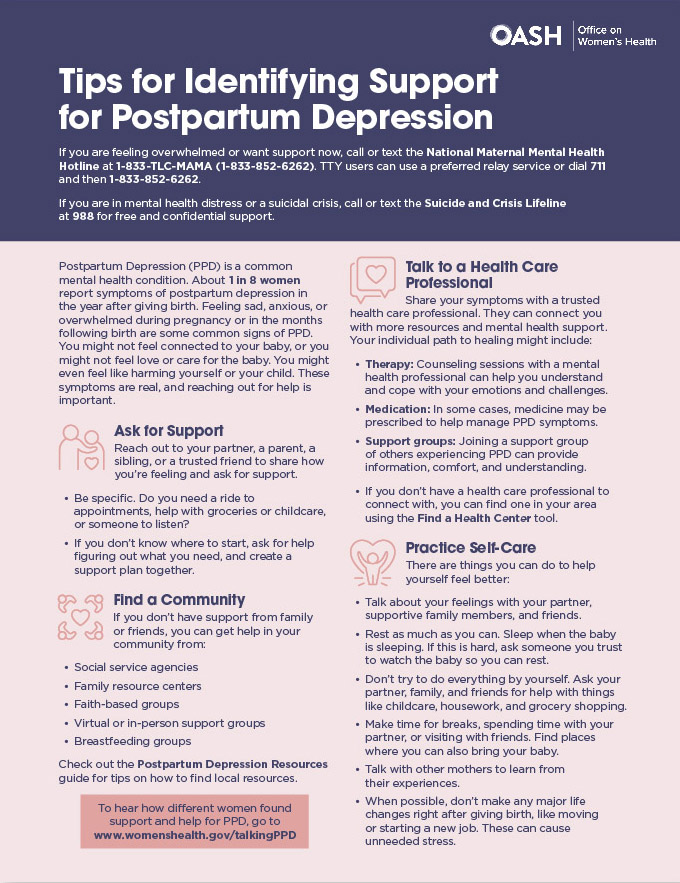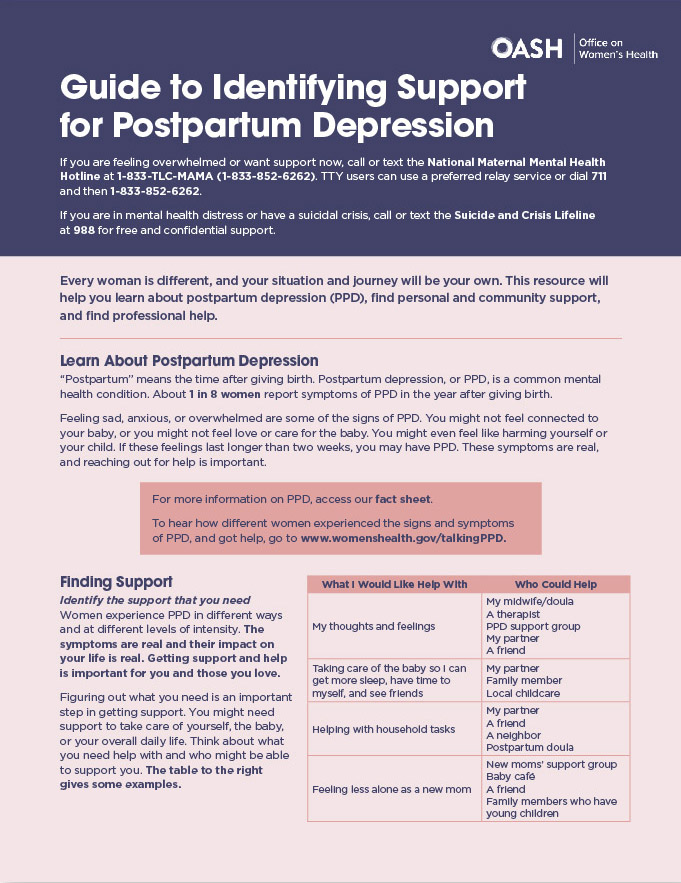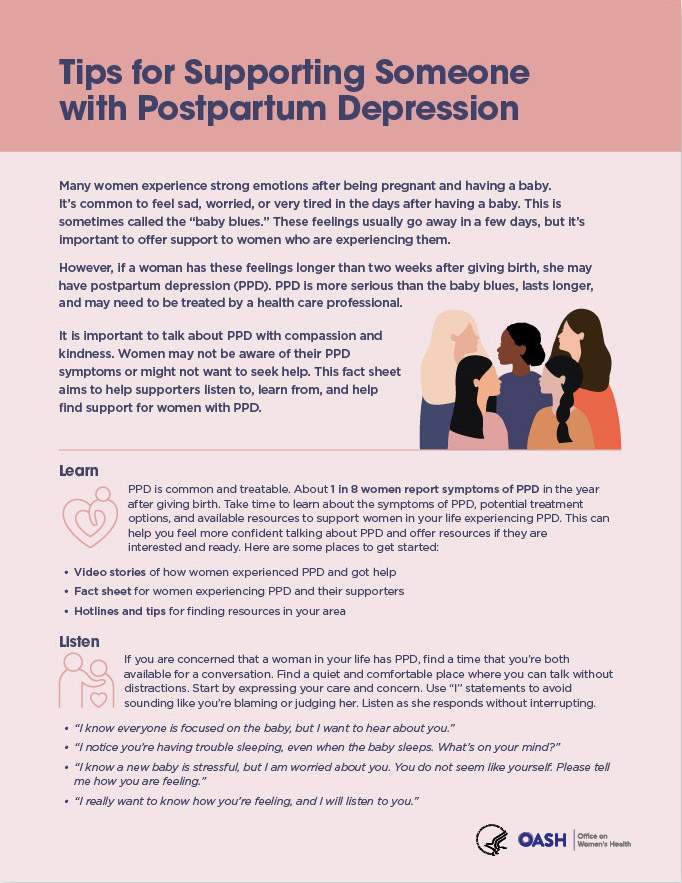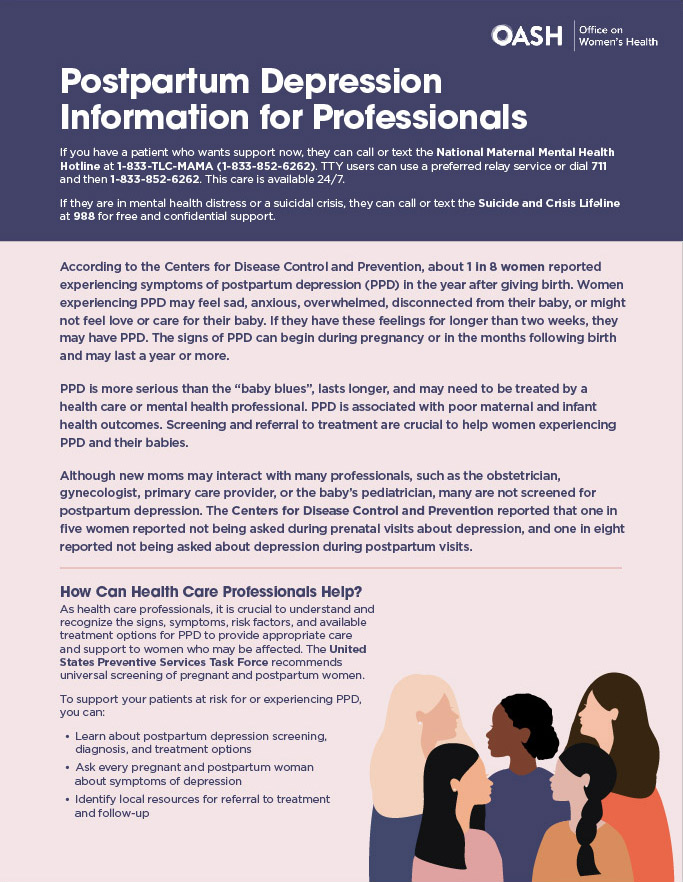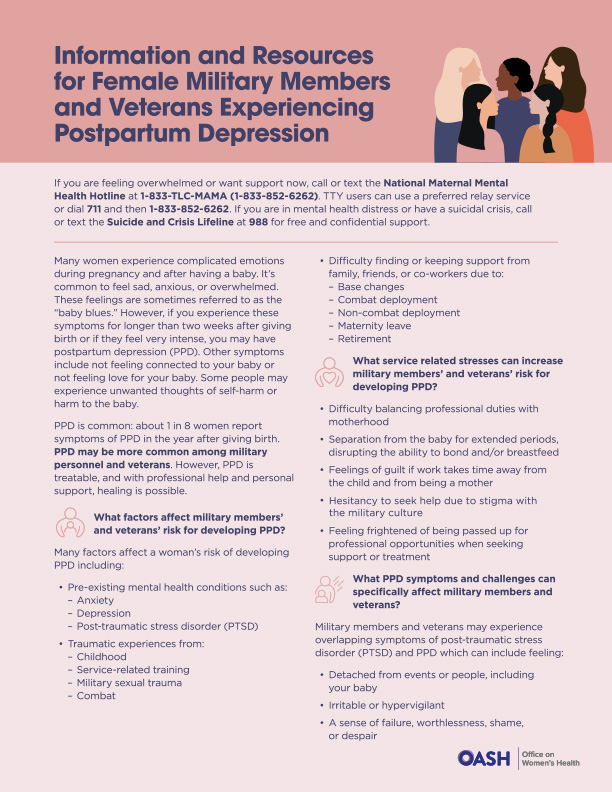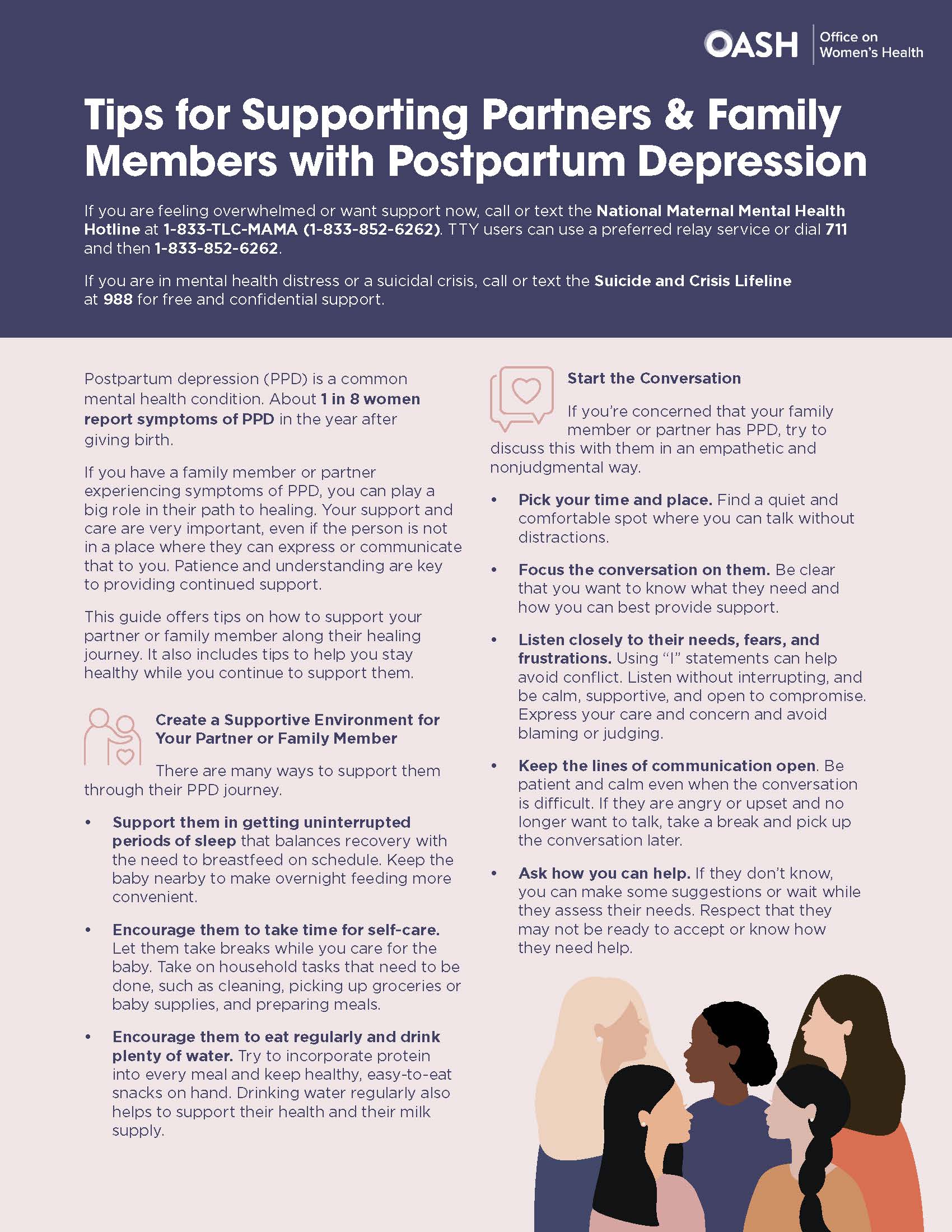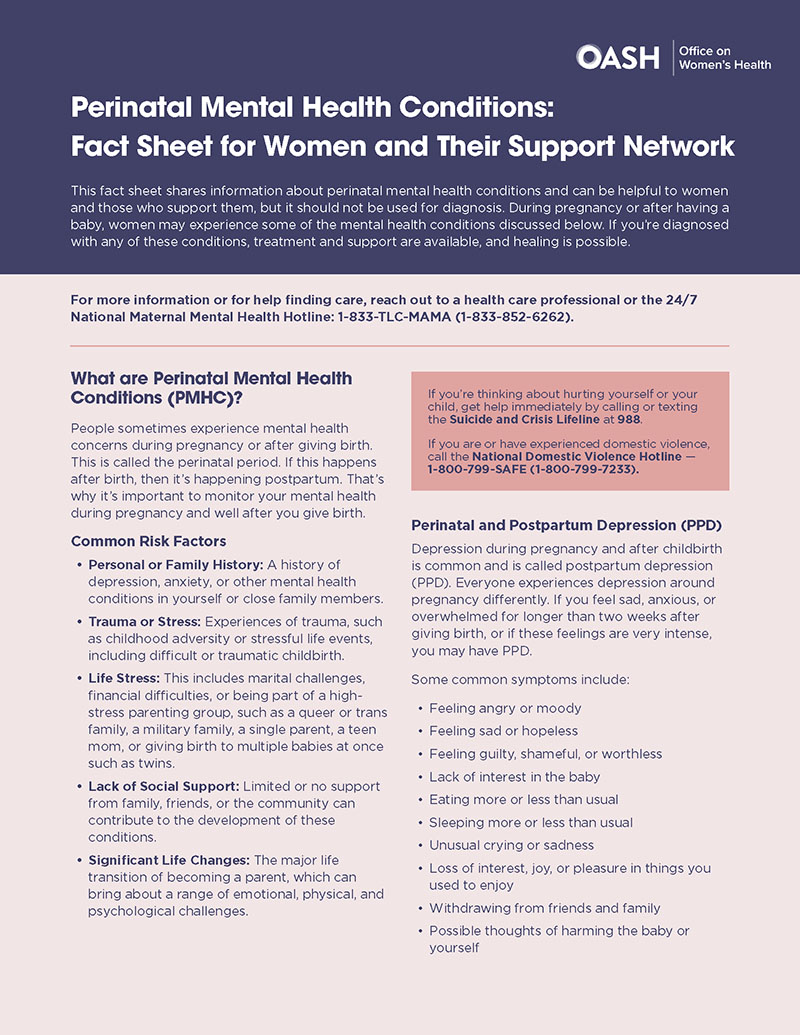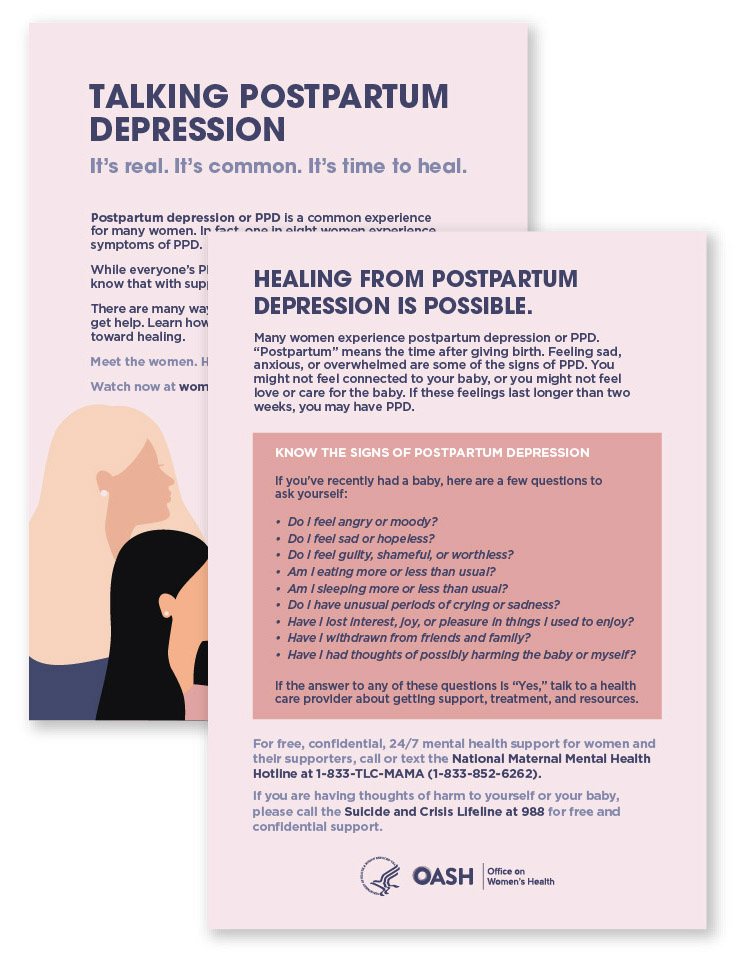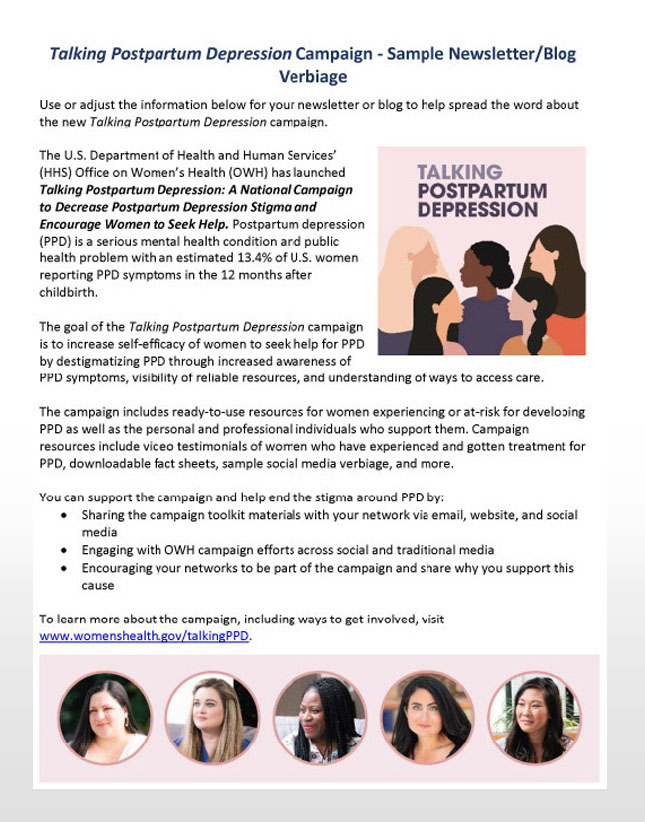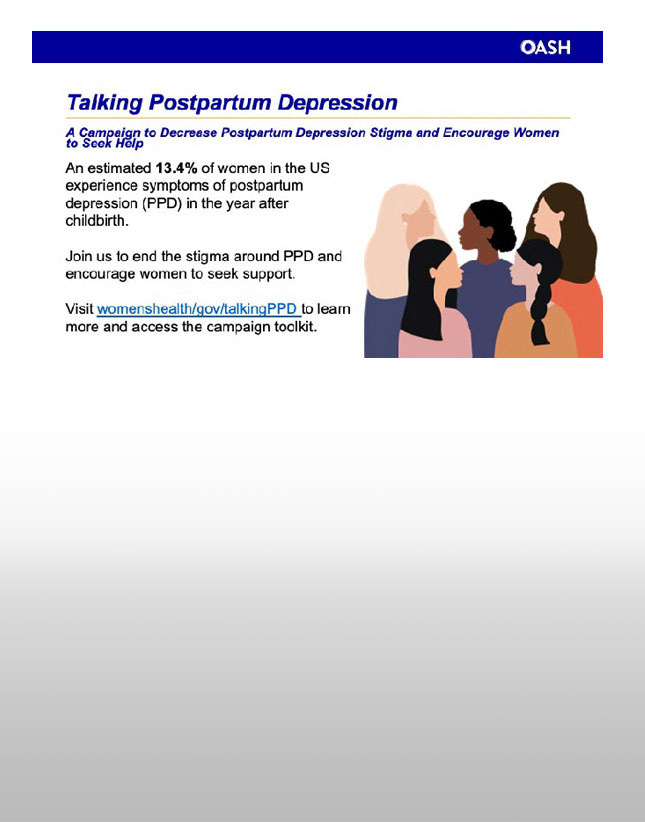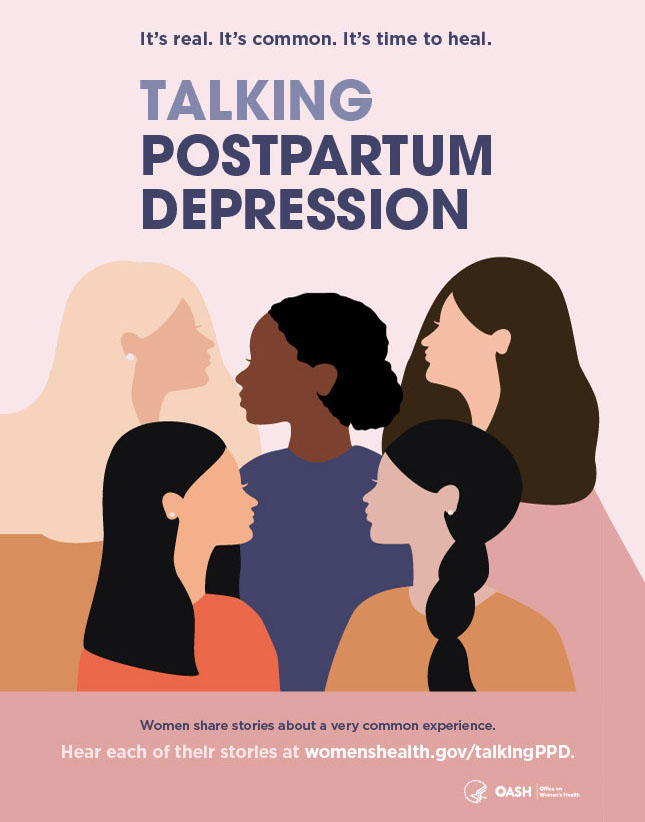Get Help Now. Call 1-833-TLC-MAMA (1-833-852-6262) for 24/7 free confidential support for pregnant and new moms. If you are in mental health distress or have a suicidal crisis, call or text the Suicide and Crisis Lifeline at 988 for free and confidential suppor t.
Trigger Warning: Mentions of mental health distress, self-harm, and suicide.
Postpartum depression (PPD) is a common mental health condition that affects about 1 in 8 women. Many women may not feel comfortable sharing their PPD experience or reaching out for help. The Talking PPD campaign aims to raise awareness of and reduce stigma around PPD to support women in finding help.
How Can You Support the Campaign?
Help raise awareness about PPD and available supports by sharing the Talking PPD campaign resources across your networks. Below you’ll find links to shareable media assets and educational materials to help women at risk for or experiencing PPD. The campaign also includes resources for families, friends, and healthcare professionals. All materials are copyright free, and citation is appreciated but not required.
Campaign Resources
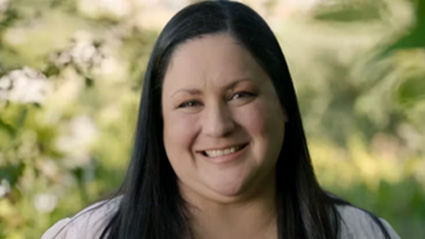
Clarissa’s Story

Sara’s Story

Shawnette’s Story

Allison's story
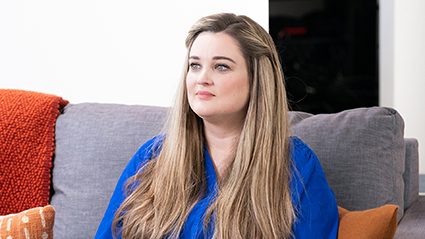
Emily’s Story
Social Media Messages
Help decrease the stigma around PPD and raise awareness about available resources by sharing the Talking PPD messaging on social media. Below you’ll find graphics and copy for use on Facebook, Instagram, Twitter, and other social media platforms.
Under each image you can download the graphics and sample messages for Instagram, Facebook, and Twitter.
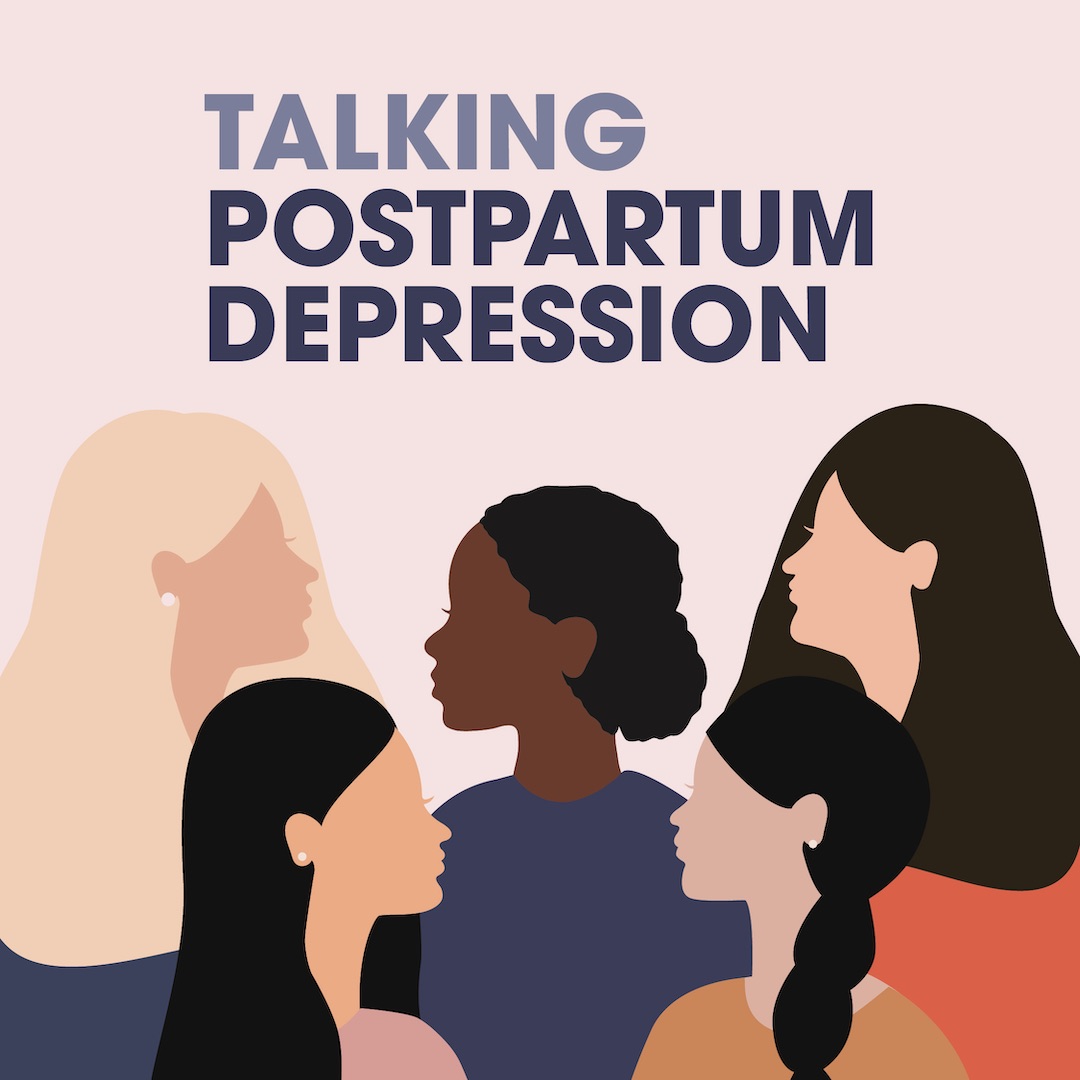
Download Image | Sample Post | Sample Post (Spanish)
Social Post
Five women. Five different backgrounds. One important thing in common: they made the decision to get help for postpartum depression (PPD). These are their stories.
Visit www.womenshealth.gov/talkingPPD to watch now. #talkingPPD
Copia de la Publicación
No es necesario que usted enfrente sola la depresión posparto (DPP). Escuche a Shawnette hablar sobre su proceso para encontrar ayuda y curación en www.womenshealth.gov/talkingPPD.
#talkingPPD
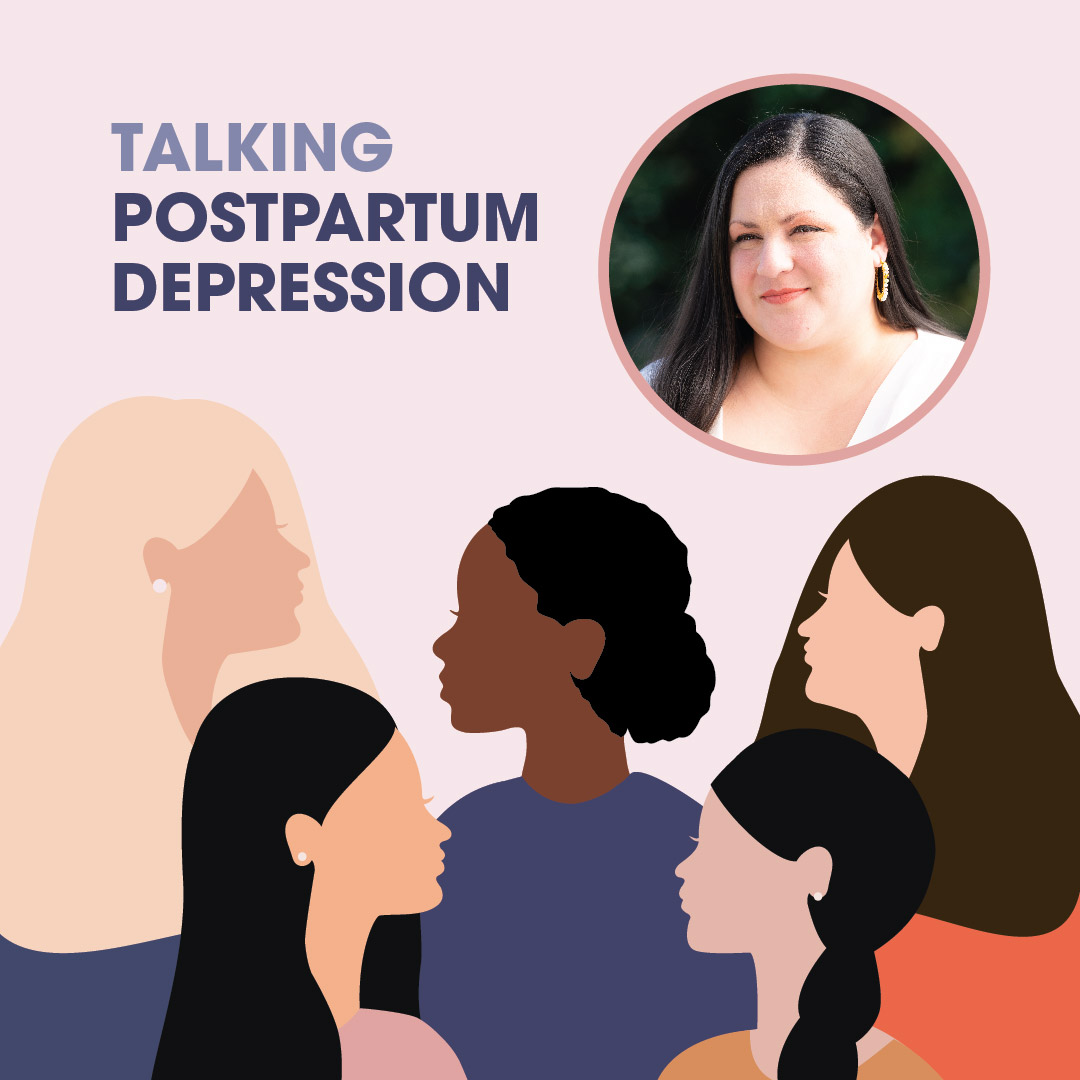
Download Image | Sample Post | Sample Post (Spanish)
Social Post
Everyone’s postpartum depression (PPD) journey is unique but there are many ways you can get help. The first step toward healing is reaching out for support. Hear from Clarissa about how she found support to help her towards healing at www.womenshealth.gov/talkingPPD.
#talkingPPD
Copia de la Publicación
Experimentar depresión posparto (DPP) no es culpa suya y puede afectar a cualquier persona. Escuche sobre la decisión de Sara de recibir tratamiento y comenzar su proceso de curación en www.womenshealth.gov/talkingPPD.
#talkingPPD
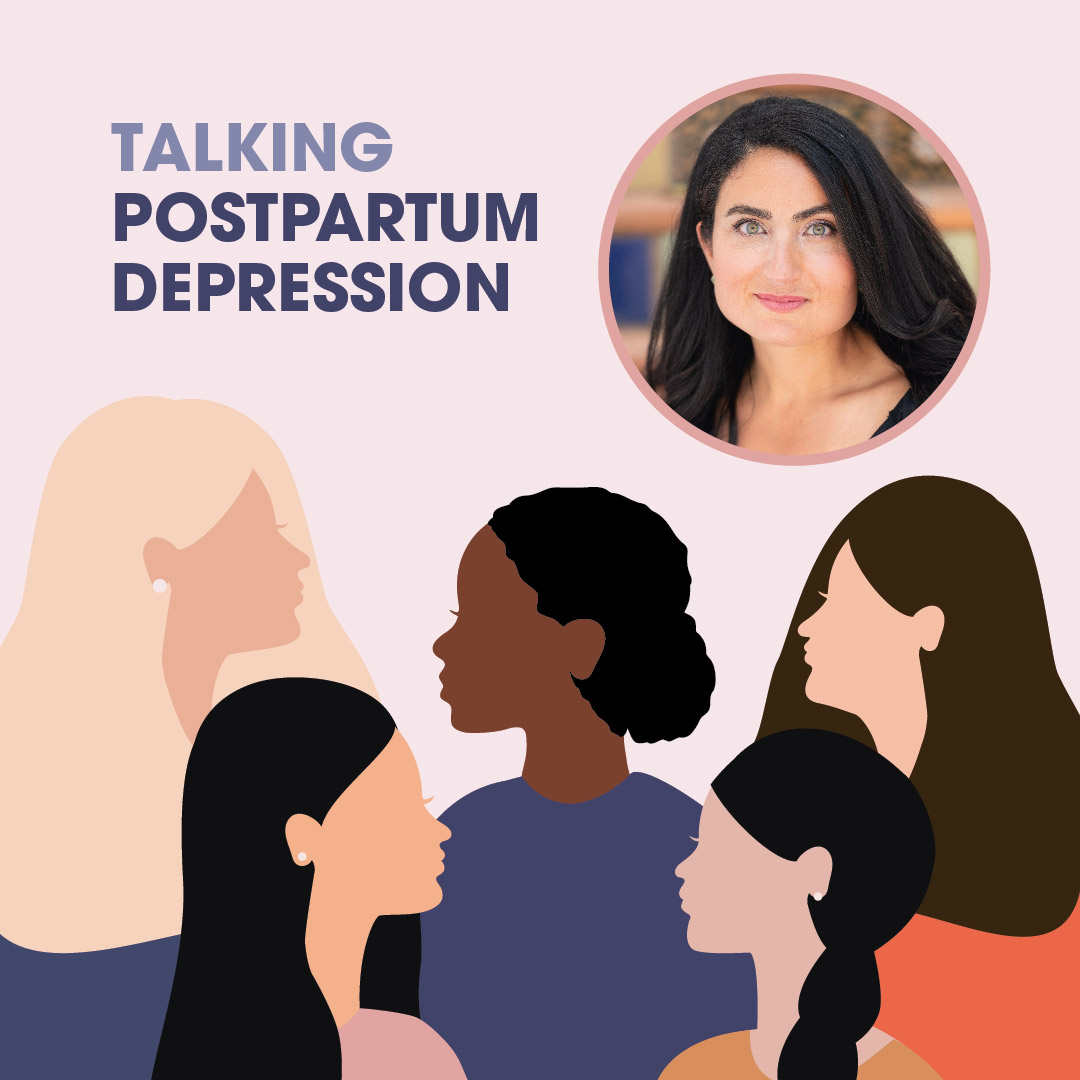
Download Image | Sample Post | Sample Post (Spanish)
Social Post
Experiencing postpartum depression (PPD) is not your fault and can affect anyone. Hear about Sara’s decision to get treatment and begin her healing journey at www.womenshealth.gov/talkingPPD.
#talkingPPD
Copia de la Publicación
La depresión posparto (DPP) puede manifestarse de maneras inesperadas, como alejarse de sus seres queridos, sentirse triste o desesperada, o desconectada de su bebé. Vea la historia de Allison sobre cómo identificó sus síntomas de DPP y obtuvo ayuda en www.womenshealth.gov/talkingPPD.
#talkingPPD
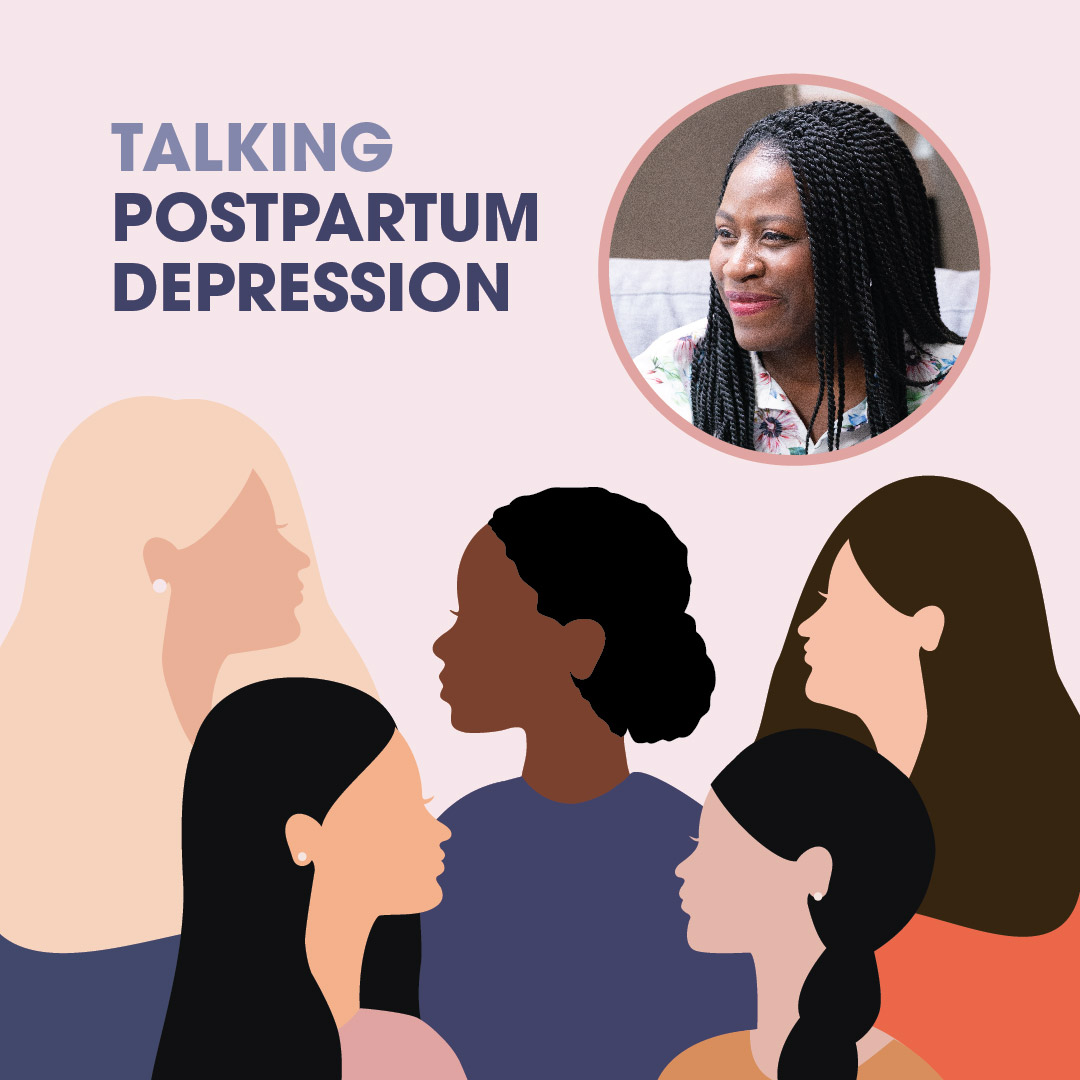
Download Image | Sample Post | Sample Post (Spanish)
Social Post
You don’t have to face postpartum depression (PPD) alone. Hear from Shawnette about her journey to finding help and healing at www.womenshealth.gov/talkingPPD.
#talkingPPD
Copia de la Publicación
La depresión posparto (DPP) es una dificultad real para muchas mujeres. Vea la historia de Emily sobre cómo encontrar un camino hacia el apoyo y la curación en www.womenshealth.gov/talkingPPD.
#talkingPPD
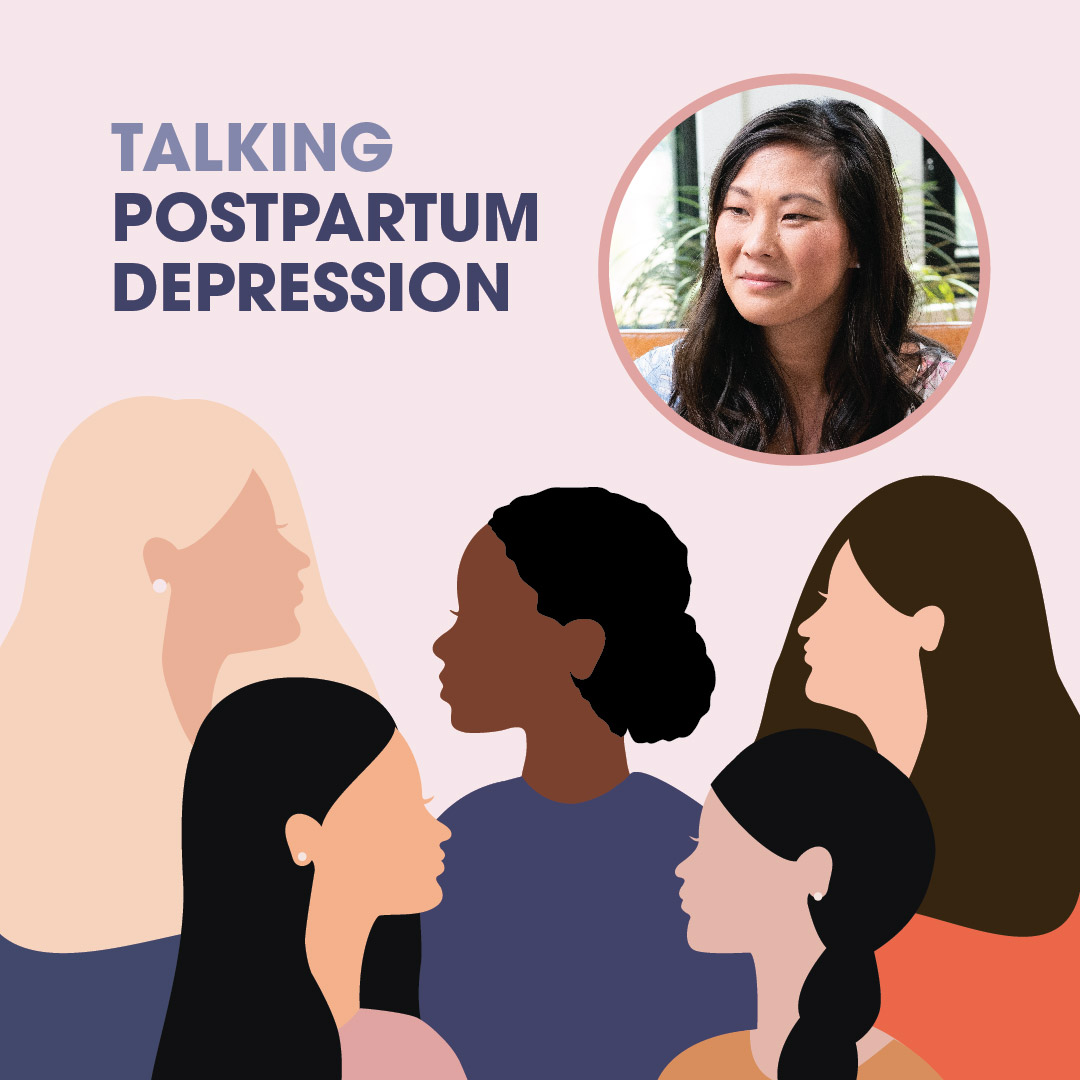
Download Image | Sample Post | Sample Post (Spanish)
Social Post
Postpartum depression (PPD) can show up in unexpected ways like withdrawing from loved ones, feeling sad or hopeless, or disconnected from your baby. Watch Allison’s story about how she identified her PPD symptoms and got help at www.womenshealth.gov/talkingPPD.
#talkingPPD
Copia de la Publicación
El proceso de la depresión posparto (DPP) de cada persona es específico para cada quien, pero hay muchas maneras de obtener ayuda. El primer paso hacia la curación es buscar apoyo. Escuche a Clarissa contar cómo encontró apoyo para ayudarla a sanar en www.womenshealth.gov/talkingPPD.
#talkingPPD
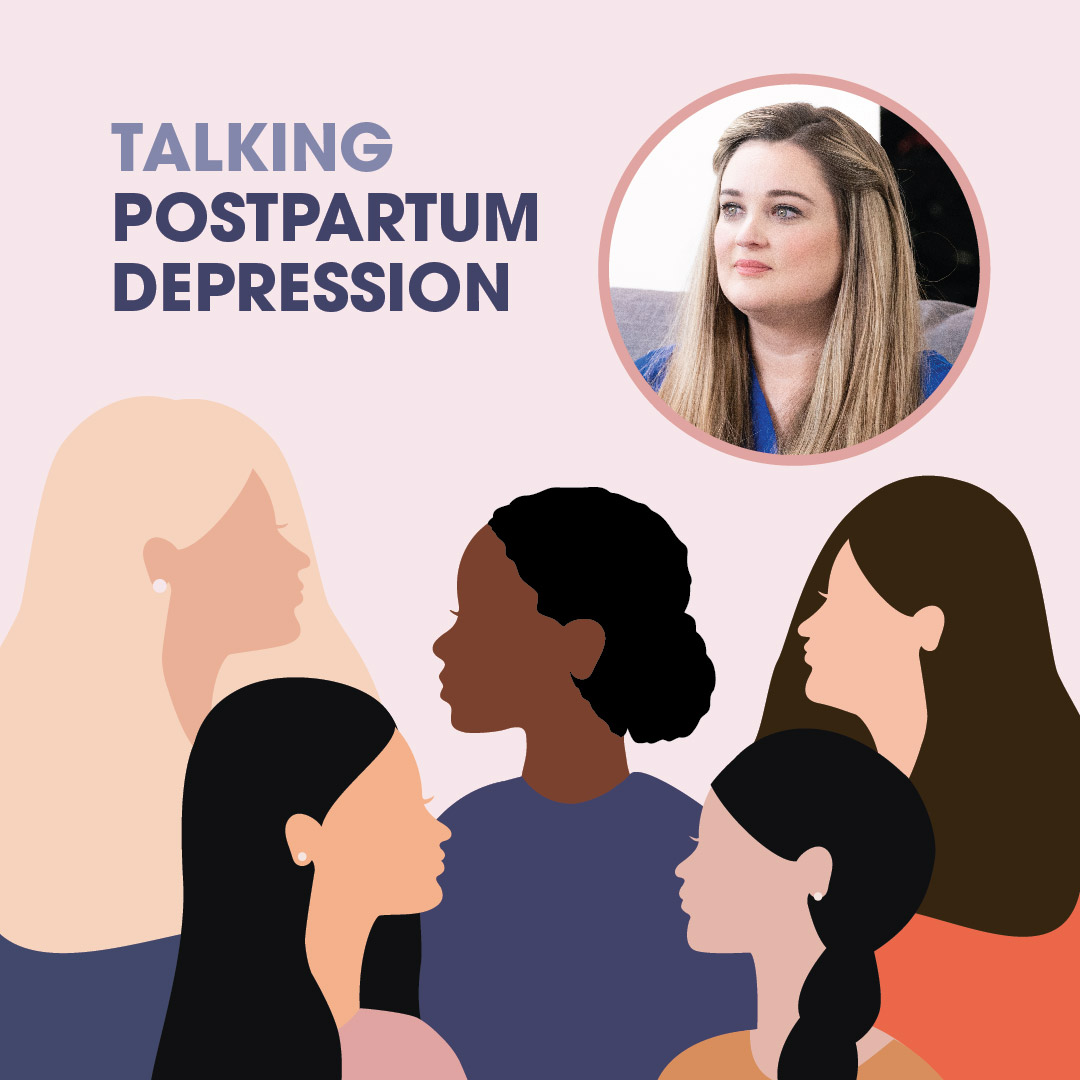
Download Image | Sample Post | Sample Post (Spanish)
Social Post
Postpartum depression (PPD) is a very real challenge for many women. Watch Emily’s story of finding a path to support and healing at www.womenshealth.gov/talkingPPD.
#talkingPPD
Copia de la Publicación
Cinco mujeres. Cinco situaciones diferentes. Una cosa importante en común: tomaron la decisión de buscar ayuda para la depresión posparto (DPP). Estas son sus historias. Visite www.womenshealth.gov/talkingPPD para verlas ahora.
#talkingPPD
Digital and Print Resources
Want to promote the Talking PPD campaign through your organization’s newsletter, workshops, or directly with others? Below you’ll find downloadable and printable fact sheets, posters, and other ready-to-use resources
Other PPD Resources
- Suicide and Crisis Lifeline: if you are in crisis, immediately call or text 988 for free access to a trained crisis counselor. TTY users can use a preferred relay service or dial 711 then 988
- National Maternal Mental Health Hotline: call or text 1-833-TLC-MAMA (1-833-852-6262). TTY users can use a preferred relay service or dial 711 and then 1-833-852-6262.
- Postpartum Support International: visit the Postpartum Support International website for additional resources for women and their support networks.
Contact Us
For more information about the Talking PPD campaign and how you can support women experiencing PPD, contact the Office on Women’s Health at:
Email: womenshealth@hhs.gov
OWH HELPLINE: 1-800-994-9662, available Monday – Friday, 9 a.m. — 6 p.m. ET
OWH and the OWH helpline do not see patients and are unable to: diagnose your medical condition; provide treatment; prescribe medication; or refer you to specialists. The OWH helpline is a resource line. The OWH helpline does not provide medical advice.For immediate assistance getting help or finding care you can access:
- Suicide and Crisis Lifeline: call or text 988 for free access to a trained crisis counselor. TTY users can use a preferred relay service or dial 711 then 988
- National Maternal Mental Health Hotline: call or text 1-833-TLC-MAMA (1-833-852-6262). TTY users can use a preferred relay service or dial 711 and then 1-833-852-6262.


